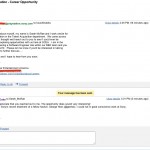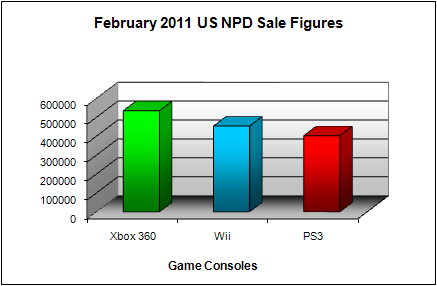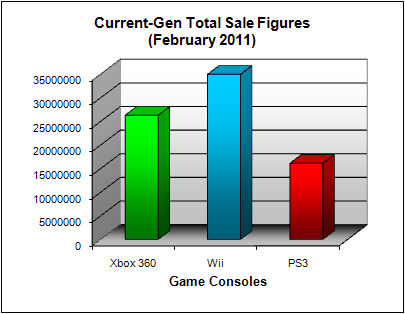Another week, another WNR. A pretty quiet week I think, one where I wasn’t paying much attention anyway, so it was good that it was a pretty quiet week and I didn’t miss any big stories because I was too busy wasting time. Anyway …
 … let’s start with copyright news. One news that did escape my attention from last week was the White House’s attempt to make unauthorized video streaming a felony. Actually, I did see the news, and dismissed it as typical posturing. And it was just a white paper anyway, and you can buy tons of white paper at Staples for less than the price of a sandwich.
… let’s start with copyright news. One news that did escape my attention from last week was the White House’s attempt to make unauthorized video streaming a felony. Actually, I did see the news, and dismissed it as typical posturing. And it was just a white paper anyway, and you can buy tons of white paper at Staples for less than the price of a sandwich.

TorrentFreak is under fire of music industry expert Moses Avalon, who says the website could be shut down under new US laws
That is until this week, when I stumbled upon an online spat between music industry expert Moses Avalon and BitTorrent/anti-piracy news website, TorrentFreak. You’ll have to read my news article, as well as Avalon’s blog and TorrentFreak’s response, to get the full picture, but to sum up, Avalon surmised, from the White House white paper, that pretty soon, P2P usage would be made a felony as well. From what I’ve read, and to be honest, I only skimmed as I usually do when I come across an opinion I don’t agree with, it seems Avalon is saying that P2P, the technology itself, would be illegal if the White House’s IP Czar had her way. I believe the only connection between the white paper, and P2P use in general, is that because P2P has an upload component, it *could* make BitTorrent transfers somewhat akin to streaming. However, and I think it’s fairly clear, that there is a huge difference between illegal use of a technology, and making that technology illegal. I don’t for one second think that technology like BitTorrent will be made illegal, because it would also make perfectly legal services, like Skype, Spotify, or even applications used by the US military today, illegal. BitTorrent is perfectly legal, under any law. What some people use it for though …
And as for why Avalon thinks TorrentFreak should be put on the banned website list, I have no idea. TF is a news and information website, much like what Digital Digest is pretending to be, and sure, it has a bias, but I think one would be hard pressed to find one website (especially a niche one) that doesn’t have a bit of a bias, including Avalon’s own website. Avalon refers to “P2P lifestyle”, for which he thinks TF promotes, and that this is the area in which the new proposed laws could see TF get banned, as TF “encourages” unsuspecting youth to lead a life of crime by downloading the latest Bieber hit. “P2P lifestyle” reminds me of the term “gangsta lifestyle”. There seems to be a lot of music these days that might be what one might believe to be promoting the “gangsta lifestyle”, something Avalon should surely know about working around the music industry (Nate Dogg R.I.P – Regulate In Peace!). Is Avalon saying that the government should ban music that could be seen as corrupting today’s youth (and yesterday’s youth too, considering gangsta rap’s long history)? If song lyrics which call for the assassination of police officers or the physical assault or even murder of other people are not illegal, then I’m pretty sure TF should be safe.

The first of many instalments that LimeWire has to pay to record labels, if they had their way in terms of damages payable
LimeWire’s troubles in the courts continues, as the music labels suing the defunct music file sharing network wants a potential $75 trillion dollars in damages, more money than the global music industry has ever made since recorded history began, and greater than the entire world’s combined GDP for a year. The judge presiding over the case has called it “absurd”, although to be fair to the record companies, they didn’t really ask for $75 trillion. It was just that the calculations they used to determine the billions in damages that do actually want is so flawed that, multiplying the amount they want per download, rather than per unique work, it does work out to be in the trillions, or at least several hundred billion. This again brings up the question of just how much money the industry is actually losing to piracy. I will cover this in more detail in a news article next week (I’m like that squirrel in that well known fable – I’m saving stuff for the “news winter”, by saving some real news for next week when there might not be any real news), but it appears that since LimeWire’s shutdown, music piracy has decreased dramatically (and yes, I’m taking a huge personal risk by linking to notorious “P2P lifestyle” website, TorrentFreak – I’m calling my lawyer as I type), as expected. In fact, nearly half of Americans that pirated music have stopped doing so in the last quarter of 2010, largely thanks to the shut down of LimeWire (according to respected research group, NPD). So surely, this should lead to increased revenues, what with 12 million less music pirates in the US now? All we need now is the figure for increased revenue, divide that by the 12 million who stopped downloading, and then we can work out the real cost of piracy, per person. Of course, if revenue actually went down in the last quarter of 2010, then that could be a bit of a problem for the RIAA PR machine.
So if there was no significant revenue increase, or heaven forbid, that there was an actual decrease in revenue, then what does it mean? Another music industry and piracy expert, from the University of Queensland Australia, thinks that the solution to the piracy problem is for the music industry to compete with piracy. Reducing price and making content more available, and as easy to access as pirated downloads, say professor Stuart Cunningham, is the key. I’m not a university professor, as I barely have a bachelor’s degree, but I think this is what I’ve been saying for some time now and it’s good to hear someone who has read books and stuff to agree with me. To be honest, the piracy problem is so bad these days (I’m in total agreement with the entertainment industry on this point), that anything, *anything*, is worth a try. Even if it means having to let go of a century old business model. Cunningham also criticized the industry’s tendencies to over-exaggerate the financial toll of piracy (and this was before the “LimeWire $75 trillion” news story came out) – it’s good politics, but it doesn’t really solve any problems, and sometimes I think the industry doesn’t really want to solve the piracy problem, it only wants to be subsidized (via tax payer handouts and whatnot) for it. Or get some judge to give them $75 trillion.
In other unreported news (unreported on Digital Digest, that is), the Australian arm of the MPAA, the AFACT, is going all the way to the highest court in Australia (there I go, linking to TF again … I’ve just become a repeat offender!) to appeal two decisions so far that have seen it on the losing side of the legal battle with Australian ISP, iiNet, over the issue ISP issued infringement warnings.
Not much happening in the world of 3D, HD and Blu-ray. Is it me or is the 3D hype dying? The only news of note was one where Samsung I think producing an external 3D Blu-ray drive for the PC. Except that all Blu-ray drives are capable of playing 3D Blu-ray movies, and so really, the “3D Blu-ray” marketing here may be just in the software included, which is not even made by Samsung (it’s Cyberlink’s). The only hardware change I can figure may be the connection interface, maybe USB 3.0 instead of 2.0, but 2.0 should be more than enough for 3D Blu-ray’s requirement of 60 Mbps, considering 2.0 is rated for up to 480 Mbps (although real world performance is only a fraction of this, but 200 Mbps is still easily achievable). Any drive rated 2x or above for Blu-ray read speed should suffice for 3D Blu-ray. I guess the 3D hype isn’t dying yet when companies are still using it to promote products that aren’t really any different to its non 3D predecessor, at least in hardware.
![]()
And finally, in gaming news, more PS3 jailbreak news this week as well known Android hacker Koushik Dutta turns down a Sony job offer to protest the company’s ill treatment of fellow hacker, George Hotz.
Sony’s R&D recruiter emailed Dutta with a Software Engineering job offer, but Dutta politely declined saying that he “could not in good conscience work at Sony”. It’s good to see someone with principles.
Sony, on the other hand, were busy trying to discredit geohot for taking a long planned vacation this week by accusing the hacker of trying to delay proceedings. Hotz is actually in South America, which sounds iffy, but he has clarified that the trip was long planned, and paid for using his own money, not that which has been donated to his fighting fund. He also assured Sony that he’s in contact with his lawyers.
One hack that may or may not make Sony mad is one demonstrated by Kinect hacker Shantanu Goel, when he demo’d running Kinect on the PS3, and using Microsoft’s controller-less motion gaming system to play Killzone 3. It’s all pre-alpha stuff, so things don’t work as well as expected, but it’s still interesting to see in action (YouTube video of the hack in action here). Why did I say it would make Sony mad? Well, what doesn’t, these days.
Best of all, the hack is open source, so anyone with Kinect and a PS3 can try it out for themselves.
Alright, that’s enough writing for this week. Have a good one!














